What is Cuba Really Like? Busting the Tourist Myth
What is Cuba like for a holiday? I often get asked this. I’ve spent a month in Cuba, over two visits, and had a wonderful time, but it’s not all smiling, cigar smoking locals, drinking mojitos. Here’s an insight into what to expect from a holiday in Cuba.
I feel like Cuba is the most mysterious of all the Caribbean islands, yet, still, it draws people in. As tourists we’re given one version of the country, but I wanted to settle the question of what Cuba is really like, and whether you’ll enjoy it for a holiday.
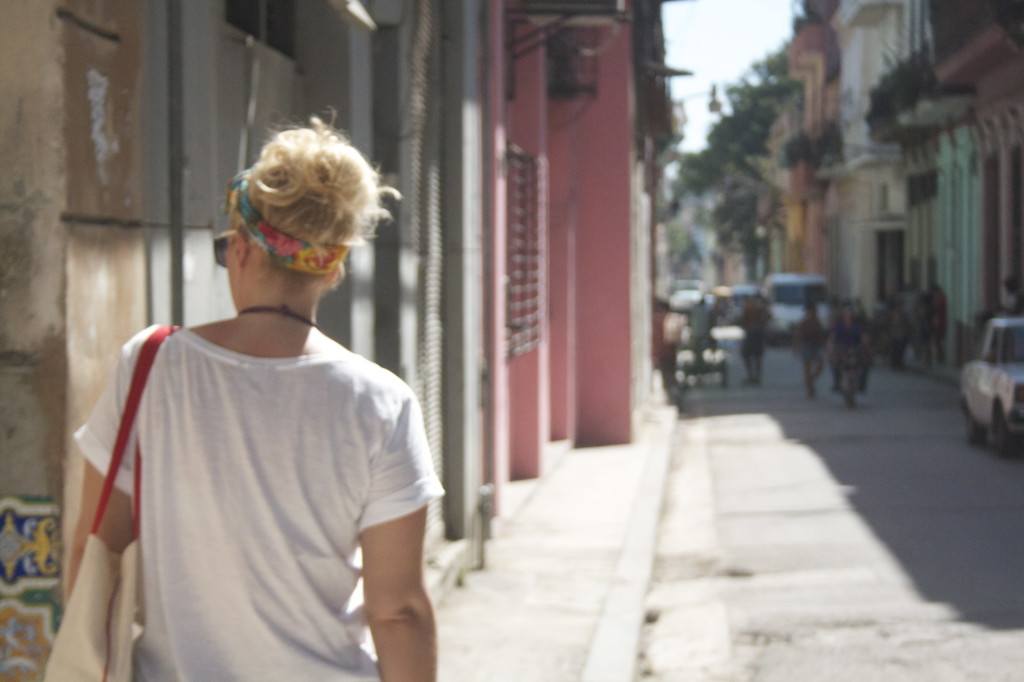
Before I went to Cuba I imagined I’d arrive in a land filled with colour.
From the old cars, to the different hues of houses, to the local people – a mix of Asian, African and Spanish descent. I pictured my days filled with wandering the streets and taking photos of happy crazy locals and their ad hoc dancing.
Imagining I’d drink Mojitos, sup on daiquiris and substitute water for Cuba Libres.
I fantasised about walking down the Malecon before being intercepted by a laughing Cuban surrounded by friends playing trombones, tubas and trumpets to the beat of a drum. He would take my hand and show me a few salsa moves before spinning me out into the arms of my boyfriend.
It’d be hot and I’d lay on the beaches, cooling off on the sand with yet another daiquiri.
On the negative side I’d been told repeatedly the food in Cuba was rubbish, to be careful in some neighbourhoods and that the locals were not allowed to fraternise unnecessarily with the tourists. That included restaurants, buses and on the streets.
It turned out my assumptions were approximately 80% correct.
I spent two weeks in Cuba in May – exploring Havana, Trinidad and Cienfeugos. In those two weeks, I got a good idea of what Cuba is actually like for us tourists to visit.
First impressions of Cuba
On arrival at 10pm on a Friday, the roar of people from the Malecon was overwhelming.
Our hotel was one block back in one of the poorer districts of Havana and when you opened the balcony doors it was as if they were in the room with us. We stayed in and slept.
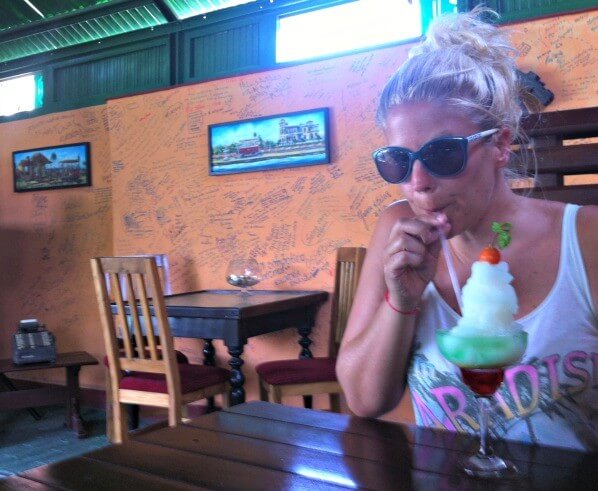
– Getting into the spirit in Cienfuegos
The next day we wandered around our neighbourhood. We were invited to parties, pleaded with to buy milk for starving babies and asked where we were from a little over 15 times. All we wanted to do was explore in peace, but the locals wouldn’t leave us alone.
I was there with my boyfriend at the time. He originally from Sudan, and me from England – this alone caused more attention from the locals than either of us had wanted.
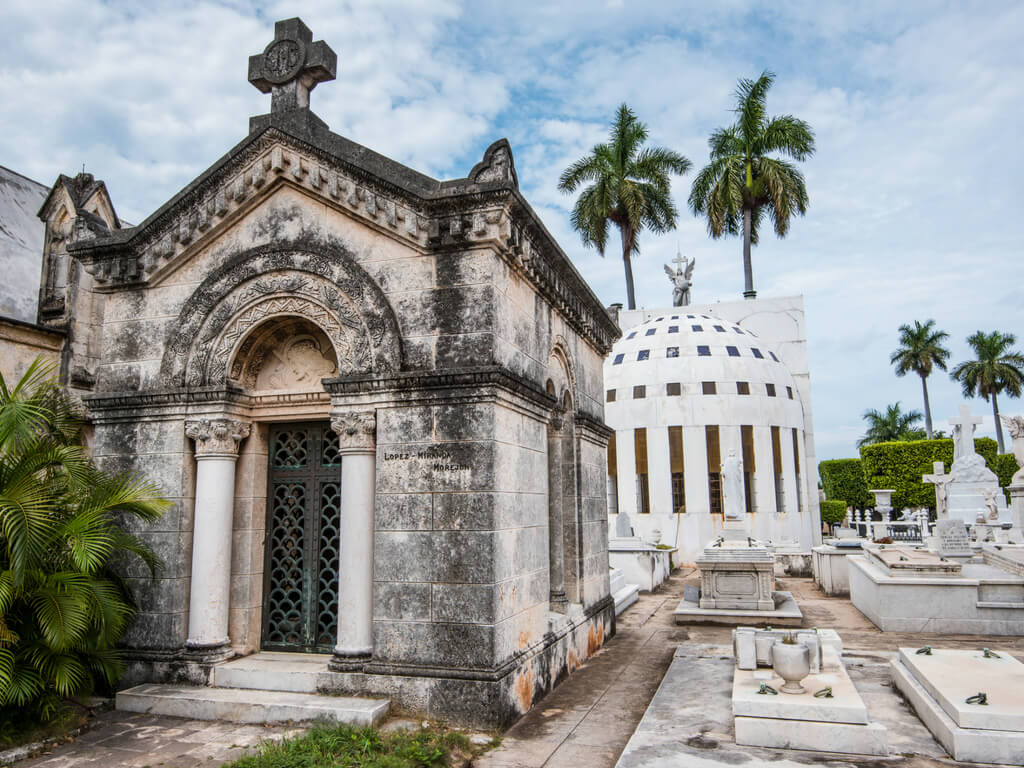
We found solace in The Nacional Hotel, isolated above the neighbourhood and sat back from the Malecon. It was obvious I was out of practice travelling. We felt like we were accosted at every turn and were unsure who was just friendly and who wanted something out of us.
It took a few days to settle in and get used to the harassment on the streets and the Cuban way. After meeting the group for the Havana Club Gap Year project I was working on for my work at gapyear.com, I was assured that the people here were generally good.
I was told I should just relax and understand that people just wanted to talk, or be our guides and show us around the city for a fews CUCs (the tourist currency). Apparently I could just say a firm ‘no’ and they’d leave us alone – but I wasn’t so sure it would work that way.
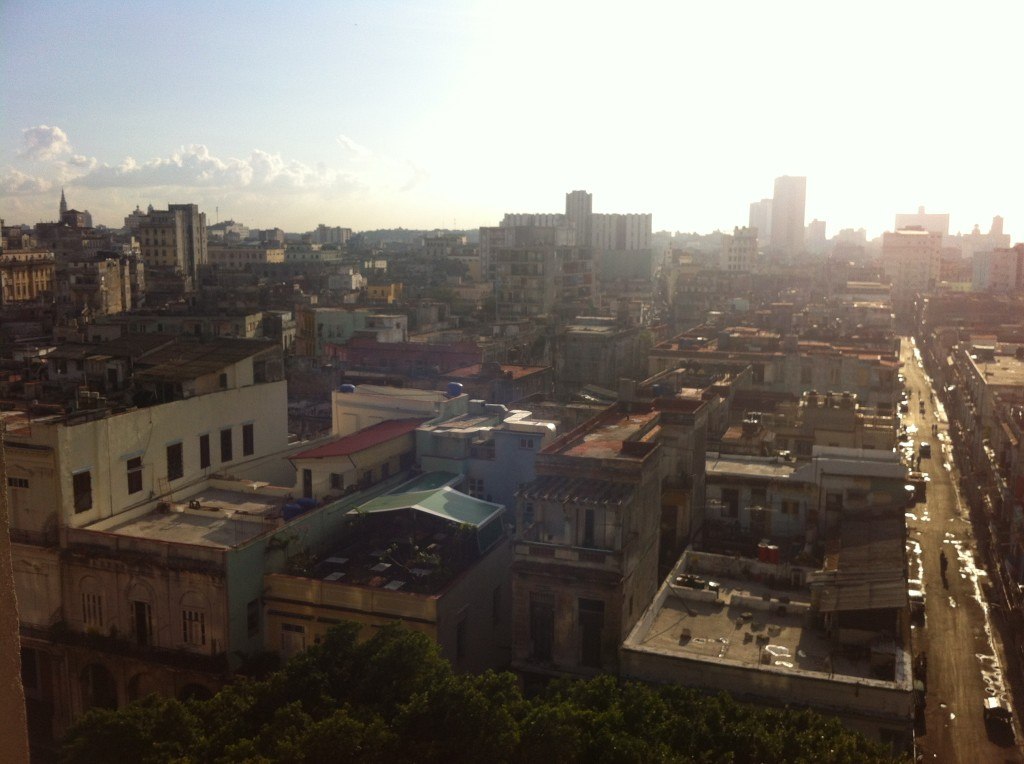
– A true look at what Cuba is really like
What is Havana really like?
As part of my work, my first few days in Havana were to work on a project for Havana Rum. Basically they’d run this huge competition worldwide and the finalists were in Havana to compete against each other. I was there with a few others to judge. The winner was going to get a whole year of incredible adventures and amazing things to do and see all over the world, but starting in Havana.
It was an absolutely incredible money can’t buy prize, and there was a lot to play for.
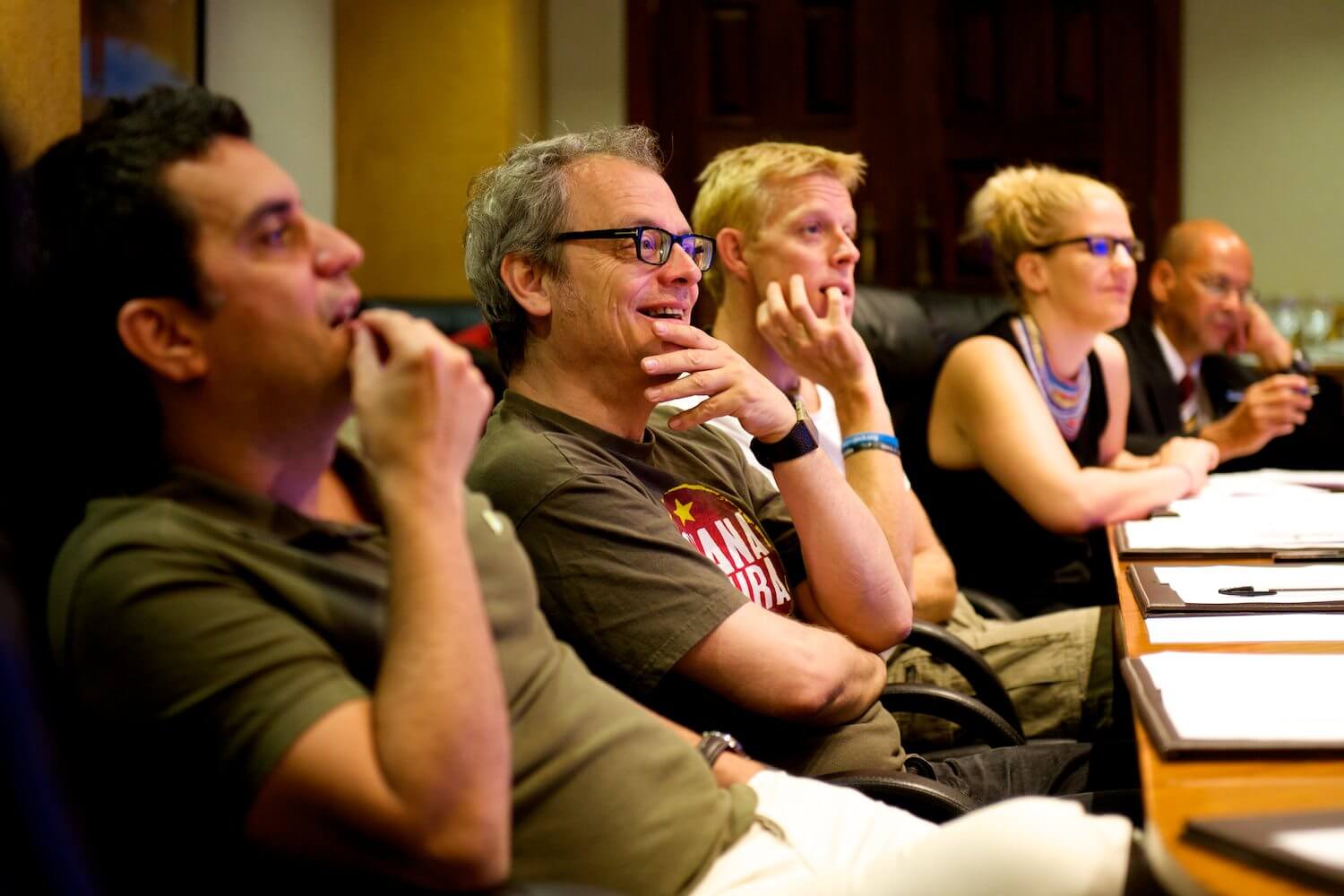
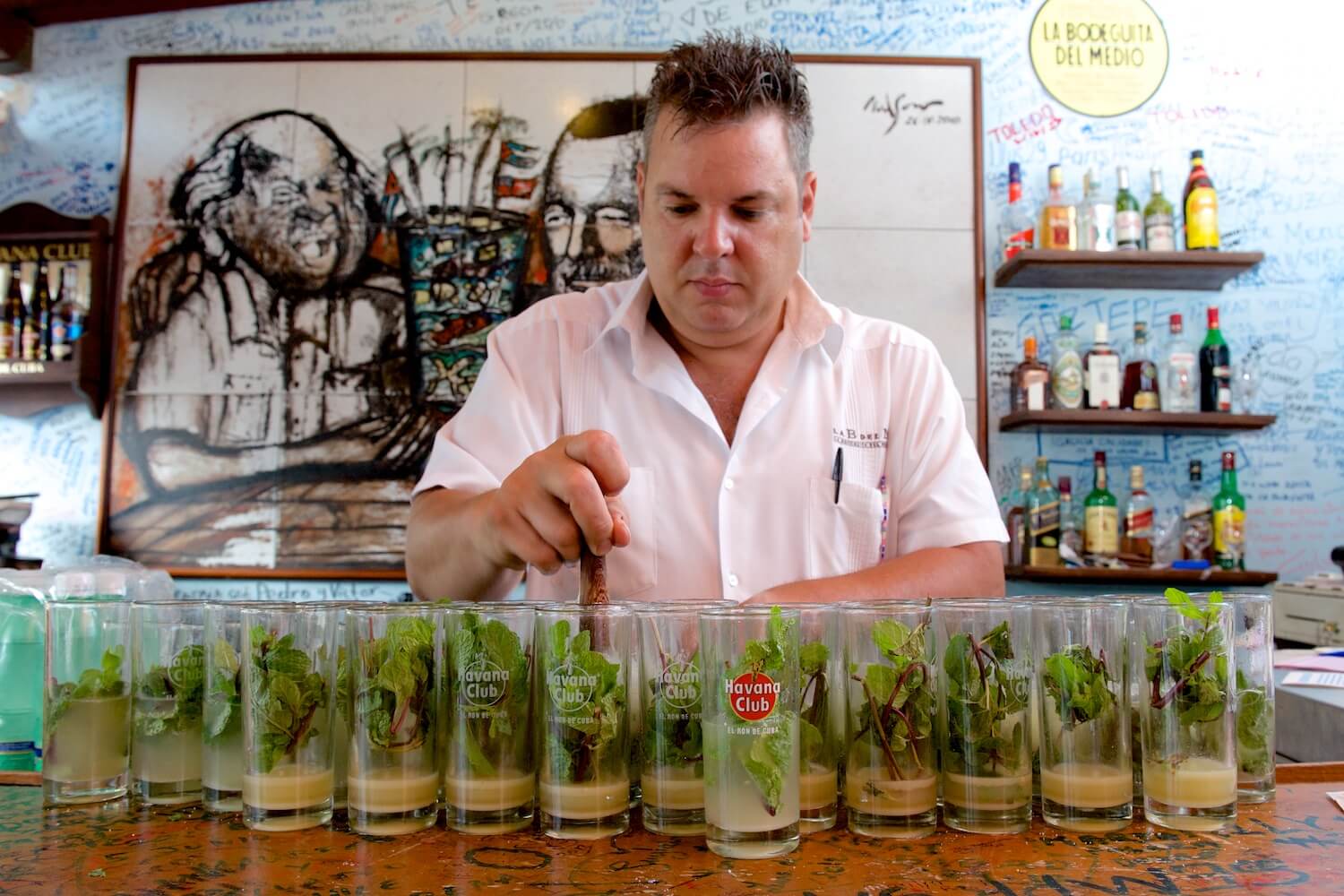
The Havana Club Gap Year finalists were tasked to go out and capture the ‘spirit of Havana’ in three minutes with their iPad Minis. Most of the group came back with stories of smiling locals who more than happy to show them around their homes and their city. They were full of how these people who ‘had nothing, but were so happy’ had changed them – made them more determined and appreciative and inspired them to be better people.
I was swept up in the romanticism of this ‘colourful Cuba’ and easily believed all that they were saying.
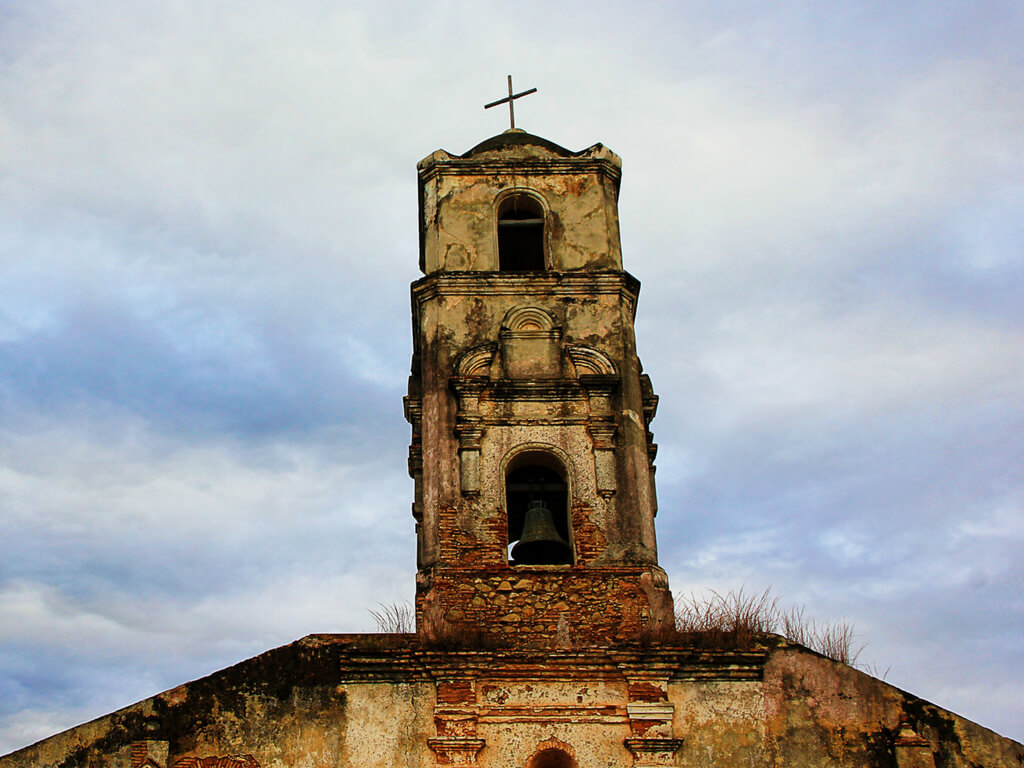
Exploring the ‘real’ Havana
It wasn’t until two days later when the excitement of the competition that I’d been wrapped up in had subsided that I began to see Cuba, Havana in particular, in a different light.
Walking up Lamparilla Street camera in hand all I saw were grim staring faces. Spanish was hurled across the street, but my ignorance meant I had no idea what they were saying. I know I felt intimidated though.
By day locals just sat staring from their doorsteps, kids stood by the pizza stands rubbing their bellies and asking for money and at night groups loitered on the streets with music blasting from their houses.
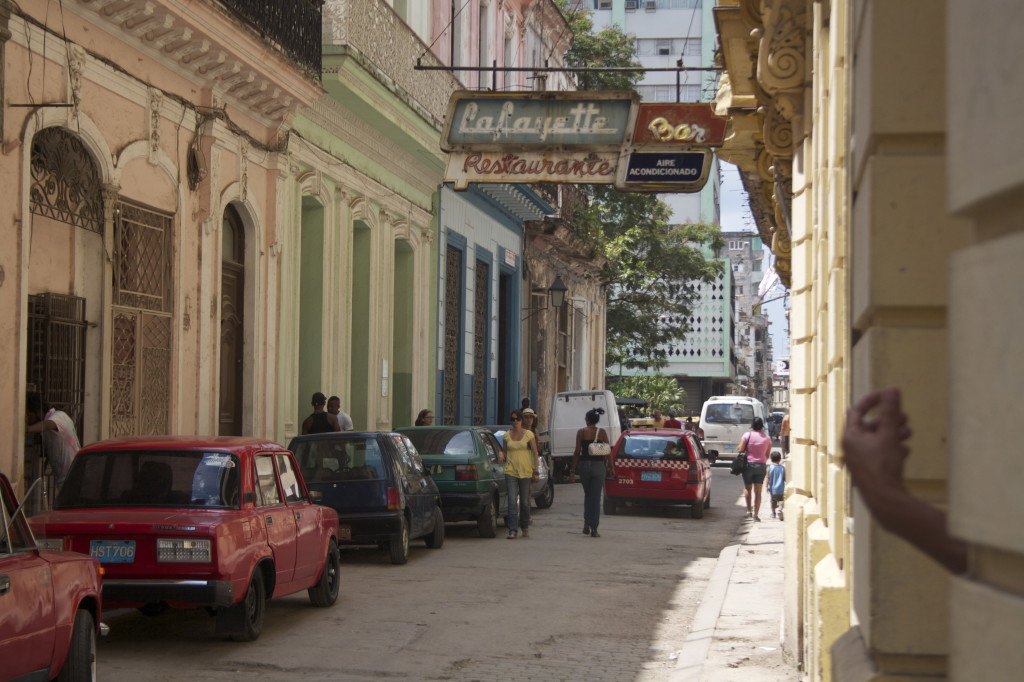
Shrivelled hands stretched out for money, they belonged to old women in ragged clothes. Her look was so childlike – pulled up socks, dolly shoes and sweet clips in her hair.
The more business-minded oldies had gotten hold of a huge fat cigar, colourful trinkets and made themselves up to charge tourists like me money for posing. At the other end of the scale I saw an old woman who’d tried to fashion a cigar out of some brown paper and had hit so far off the mark of these successful ‘posers’ it was painful to watch.
Locals just doing what they can to earn some money.
Interesting video from the Washington Post about the current situation in Cuba
The happy photos you see of bands playing never relay the group following up with a sweep of the bar guilt-tripping tourists into buying their CDs or adding a CUC or three to their begging tray. Too often these bands would also have a vagrant or two hanging on and dancing around them to then demand money from tourists too.
For the entertainment.
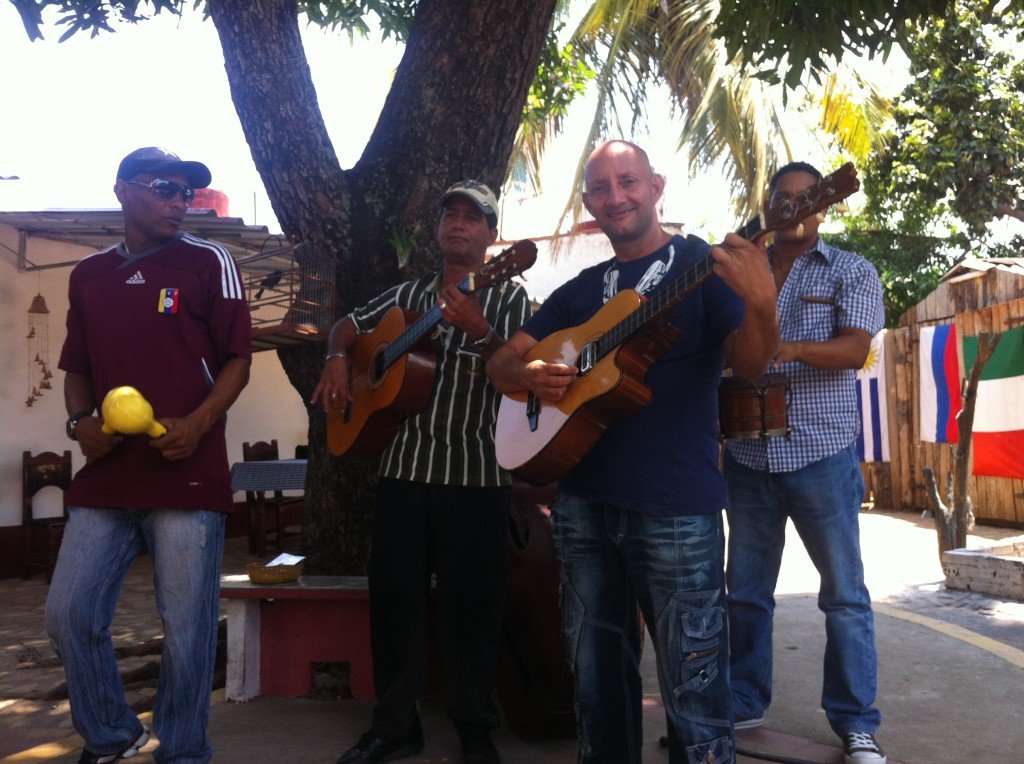
Tourists vs locals in Havana
In one particular incident I was watching a Cuban woman dancing what appeared to be a mixture of line dancing and crunk. I’d seen her a few times doing the same around the squares of Havana.
A tourist came along and she took his hand to dance with him for what could have been no more than 30 seconds. His friends laughed, took a photo on his super fancy DSLR and then he pulled away to carry on with his day, without giving her any money.
She shouted after him in the middle of the square and he just shrugged back at her. It was obvious dancing with tourists was this woman’s job – she went and sat in the shade visibly upset and massaging her feet. Obviously this guy never asked for her to do it, but he did take the photo, and I think should’ve understood there’d be a fee for this.
So, what is Cuba really like?
I saw a different Cuba to the tourist ideal.
Like the cars that are buzzing around, on the surface Cuba looks beautiful, but the most beautiful things rarely are underneath. Actually get in one of the cars and you’ll see the ripped upholstery, the carpet missing from the floor and the dashboard cracked and broken.
In my eyes Cuba was the same.
After eight days in Havana I’d got closer to it, especially after hanging out with more locals than the average tourists thanks to the project I was on.
After that, travelling six hours through the country to Trinidad and then back through Cienfuegos further opened my eyes to what Cuba is really like.
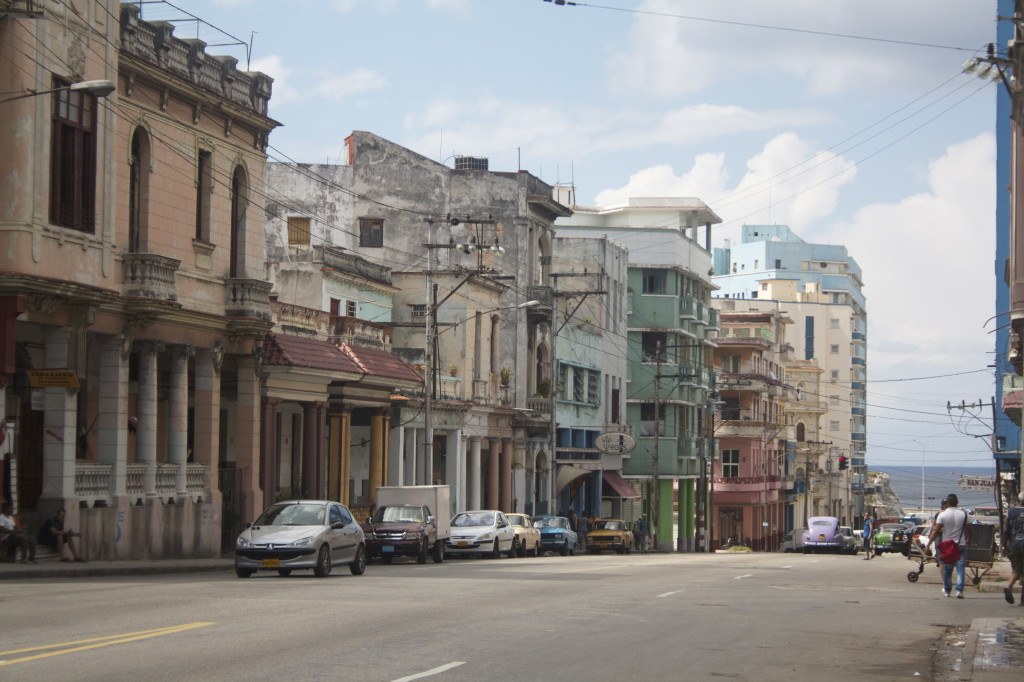
Life in Cuba is hard
From what I’ve read, heard and seen with my own eyes life in Cuba is hard.
The people, the houses and the essence of Cuba seemed desperate to me. Redevelopment is focused on the tourist areas – when Old Havana is revamped it will be stunning, but to the detriment of those living in the poorer residential areas. There is so much to say about such a fascinating city, but that’s my point. Cuba is not just the simple, colourful, photographer’s dream you imagine and see at first look.
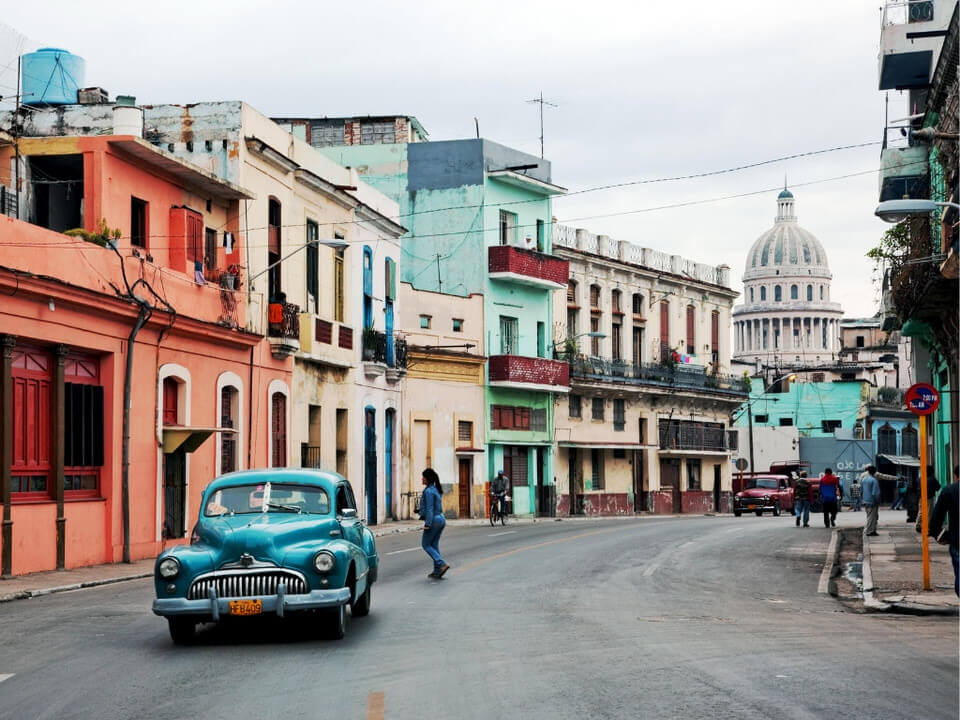
Turn a corner and you could be hit in the face by the stench from the bins, visit the parks and you’ll see prostitutes and drunks sprawled on the floor in their own sick, look in the windows of the houses and see nothing but a basic bed frames, and sometimes just a stash of blankets in the corner.
When I found out at the finale party that many of the finalists had been charged for their ‘local experiences’ I understood the friendliness on the street. They’d spotted young tourists with fancy cameras, ‘befriended’ them to come for dinner or a ride, and then sent them a bill at the end.
The trouble is, the young filmmakers weren’t adding that to their stories, they were making out like it’d been an all-authentic experience, complete with a local who’d been ‘so friendly’ and ‘ so open hearted’ they’d shown them round with the goodness of their hearts.
And so the false perception of what Cuba is really like, is perpetuated.
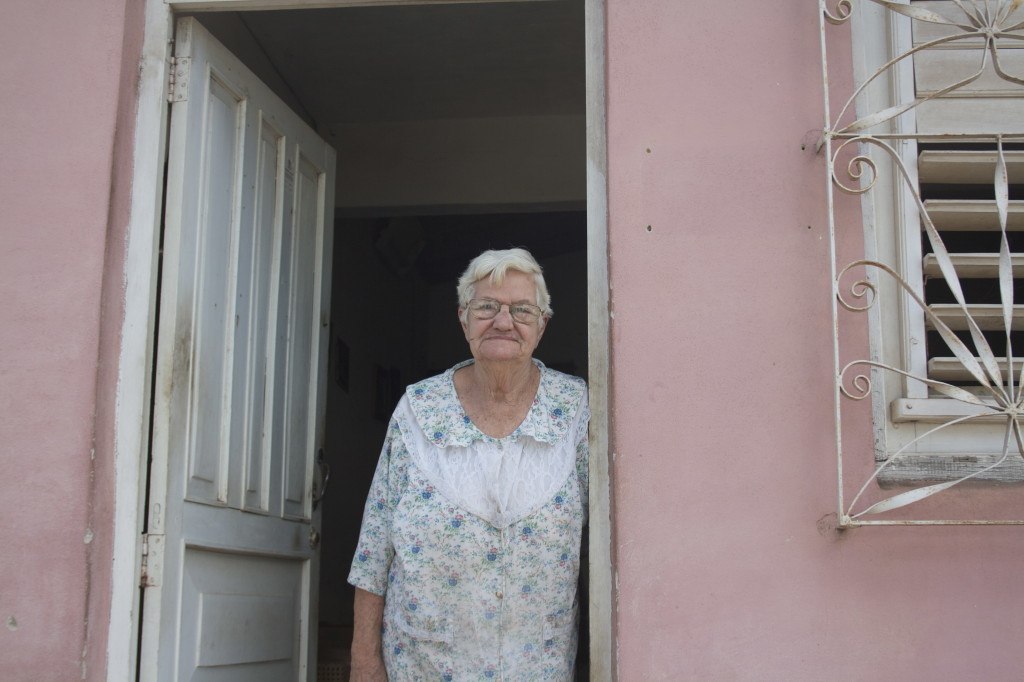
Currencies in Cuba
Cuba has two currencies – one for the locals and one for the tourists. Tourists use Cuban pesos, while locals use Convertible pesos. This gives the government more control on who is spending what and where.
Unfortunately it also means that state workers like doctors and teachers are on considerably less than entrepreneurs who deal with tourists.
The locals in Cuba earn the equivalent of $17 a month and operate on a rationing system. Getting their hands on the tourist money is key. It’s this desperation that triggers the ‘taxi’, ‘taxi’, as soon as you emerge from your hotel, it’s also the same reason you will be asked the time, or ‘where you’re from’ or whether you ‘want to go to a party’ on an hourly basis.
Entrepreneurial workers know you have the money and there are only a few ways they can get it.
What is Cuba like now?
I absolutely loved Cuba, please don’t misunderstand me.
It’s beautiful and charming and I have post after post I want to write about how incredible the country is, but with this post I wanted to give you the full picture of what Cuba is really like.
The ‘twee’ idea of Havana, of smiling faces dancing in the streets and everyone having a gay old time is a myth. Don’t fall for it.
Just remember, the popular tourist streets are the Cuban’s office and you’re their client for a range of services from taxis, to tour guide to cheap cigars. Cuba is a wonderful place for a holiday, but those smiles come at a cost.
